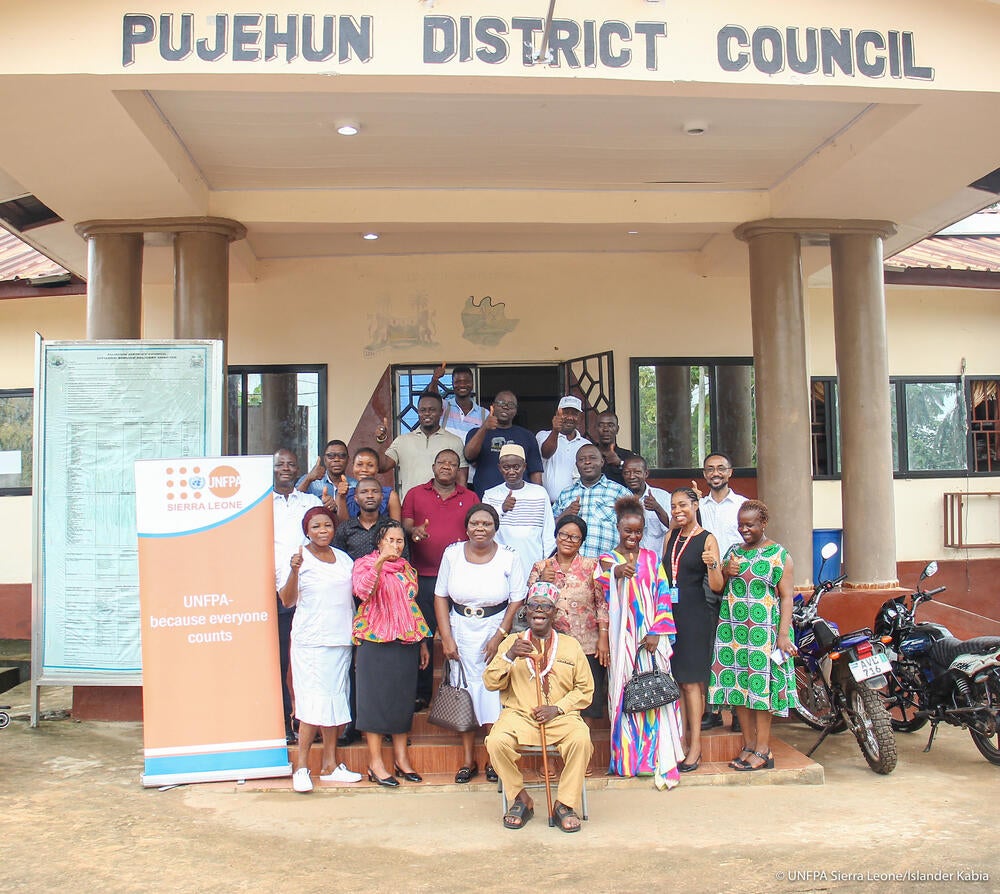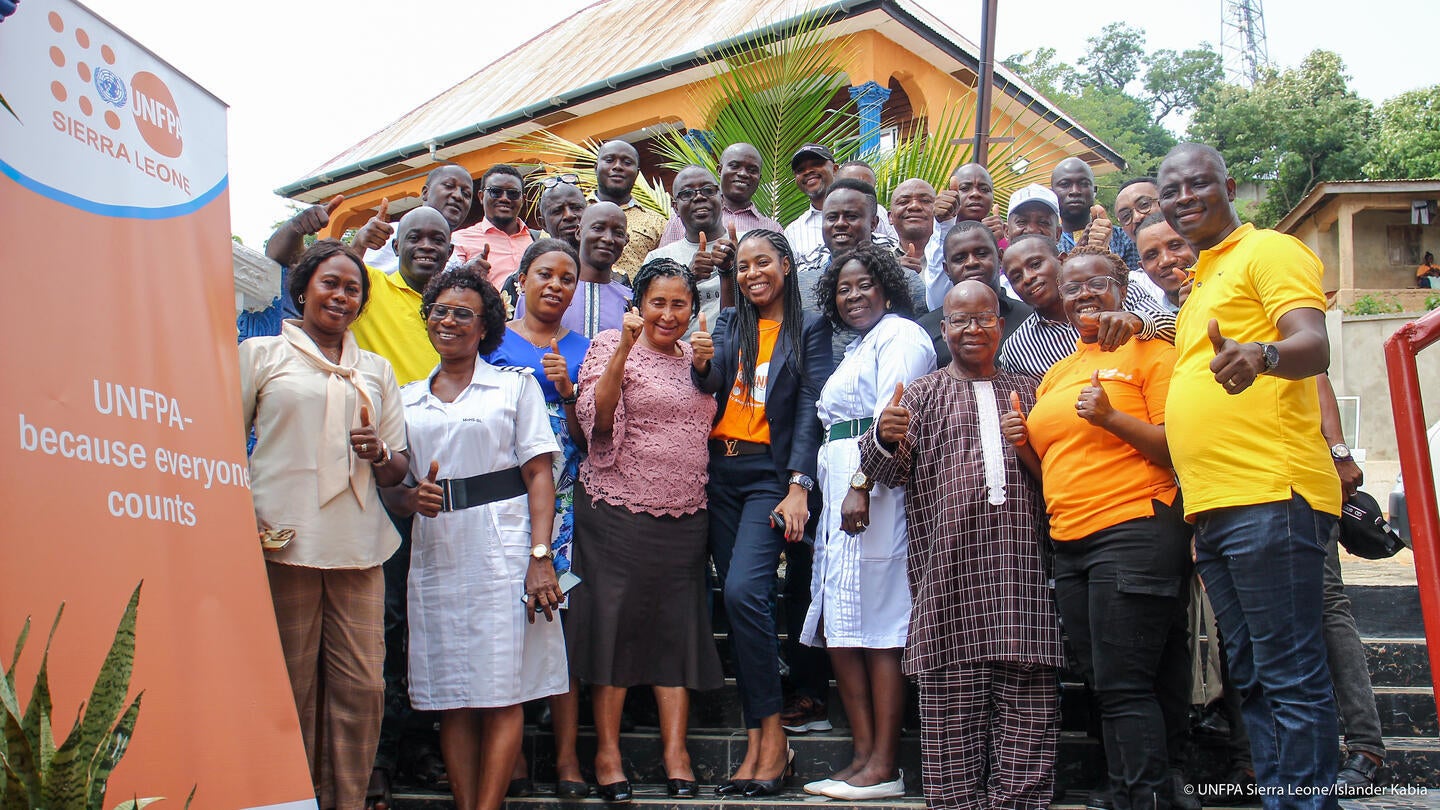Sierra Leone, May 2025: The United Nations Population Fund - UNFPA, in collaboration with the Ministry of Health, Ministry of Basic and Senior Secondary Education, Marie Stopes Sierra Leone and the Welbodi Partnership, has successfully concluded a series of district-level consultations in Koinadugu, Falaba, and Pujehun. Held from 27-29 May, the sessions introduced a proposed integrated sexual and reproductive health (SRH) programme targeting adolescents and young people aged 10-24 years.

The initiative - “Empowering Adolescents and Youth through Integrated SRH Education, Services, and Condom Programming” - aims to expand access to youth-friendly SRH services, deliver life skills-based education through the Child and Adolescent Health and Life Skills (CAHLS) curriculum, and revitalizing condom programming for triple protection: against HIV, STIs, and unintended pregnancy.
These districts were selected due to persistent SRH and development challenges. Over 86 percent of their populations live in multidimensional poverty, far exceeding the national average. In Pujehun, 31 percent of adolescent girls aged 15–19 have already begun childbearing - the highest rate nationally. Modern contraceptive use among married women remains low: 7 percent in Falaba, 13 percent in Koinadugu, and 16 percent in Pujehun.
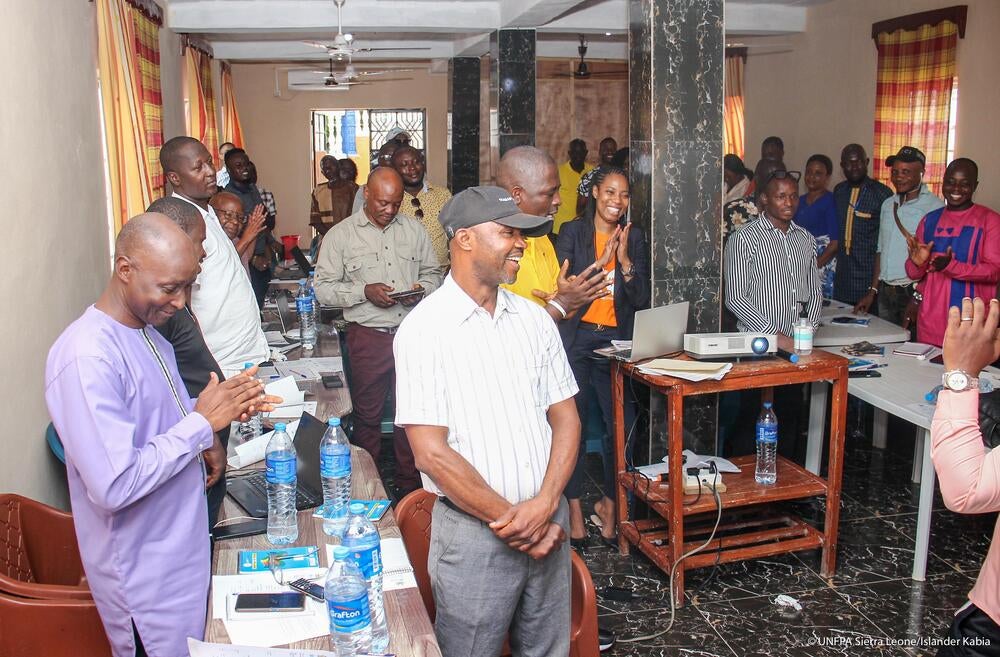
The consultations brought together stakeholders from District Health Management Teams, Education Offices, local councils, youth organizations, traditional leaders, and civil society to provide input into the draft programme and research components. These discussions focused on ensuring relevance to district realities, identifying entry points, and strengthening coordination.
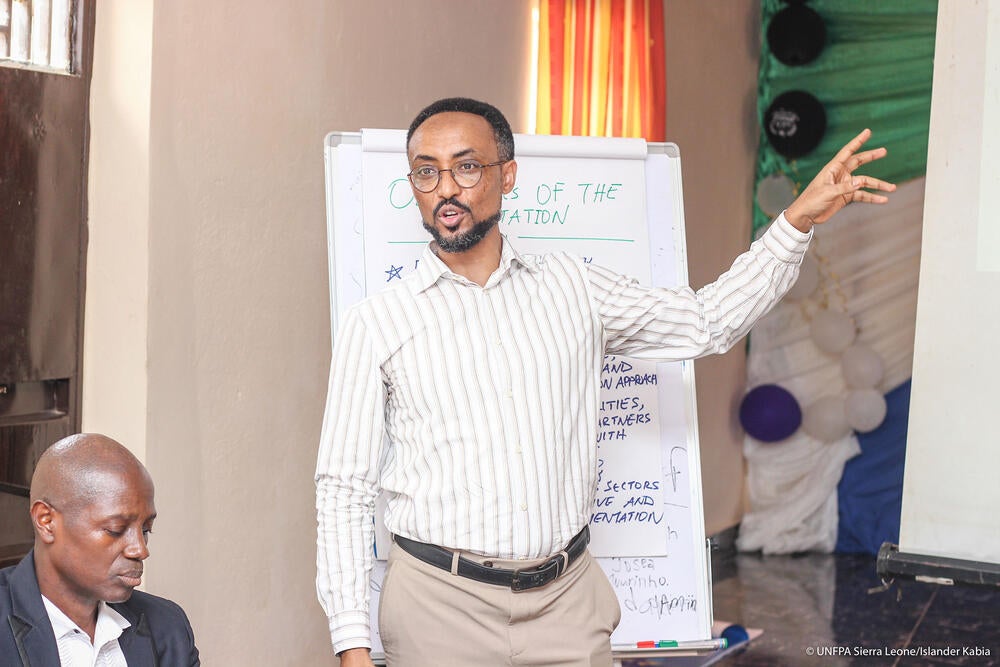
“These consultations are a critical step to ensure local ownership and sustainability," said Gamachis Shogo, UNFPA Technical Specialist. “We are encouraged by the level of engagement from all sectors, particularly young people.”
In Koinadugu, stakeholders emphasized the need for stronger community-based services and referrals.
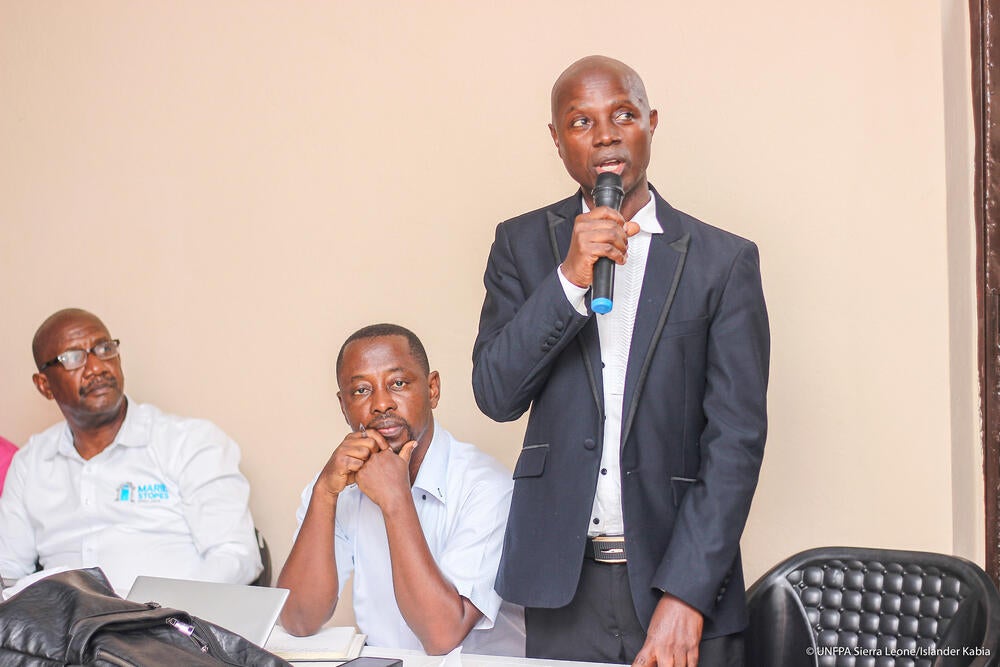
“Empowering youth through education and services can significantly reduce maternal and child deaths,” said Dr. Steven Fonnie, District Medical Officer from Koinadugu.
A health service provider from Falaba echoed this sentiment, noting,
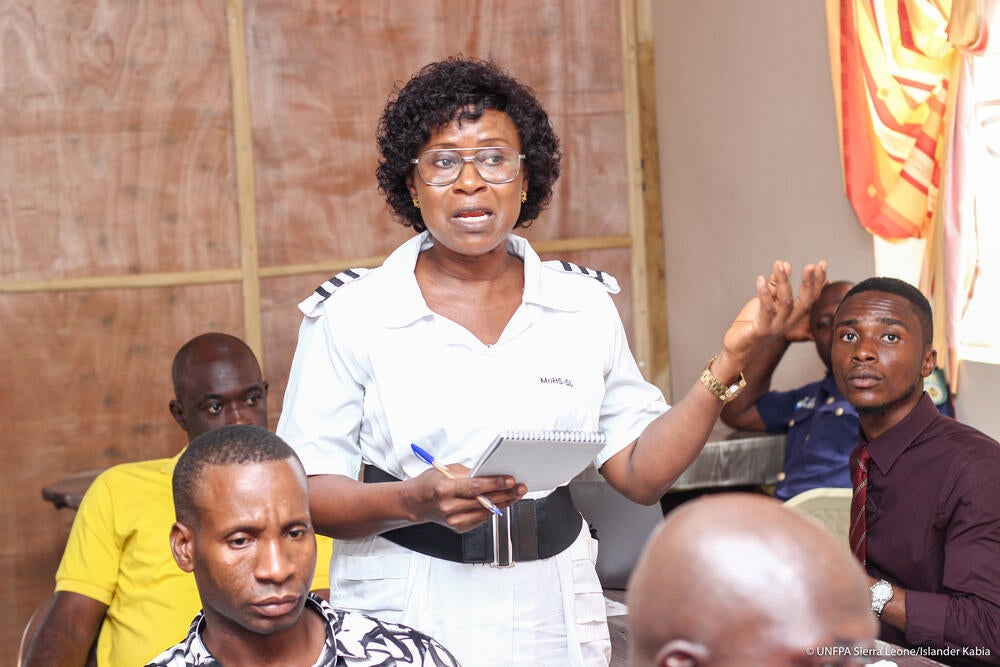
“What stands out for me is the clear interest shown by partners in adolescent and youth issues. Empowerment and education are crucial. This programme is very relevant and needed.”
The consultation in Pujehun took place on May 29 and was graced by the presence of Paramount Chief Andrew Kai Kai, who welcomed the programme and pledged support from traditional leaders:
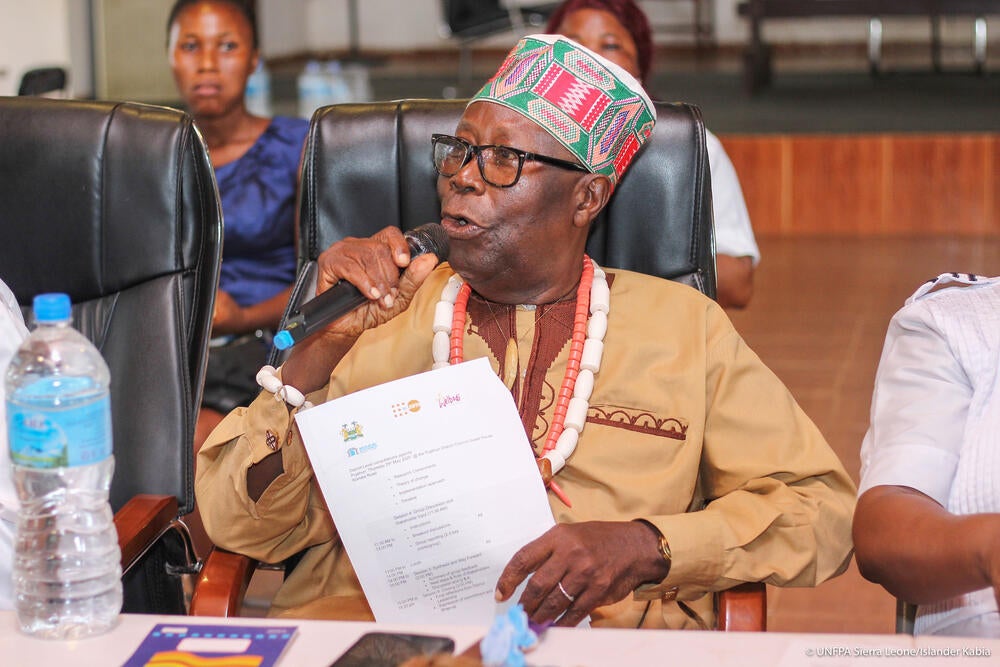
“We stand ready to support any initiative that protects and empowers our youth.”
Dr. Momoh Nyallay, the Medical Superintendent at the Pujehun Government Hospital noted:

“This topic is very dear to us. The higher the rate of teenage pregnancy, the higher the maternal mortality. I am pleased with the approaches being taken - focusing on adolescent health, education, and life skills. If we work together, we can reduce these figures.
Youth leaders echoed the importance of inclusive design and meaningful engagement.

“This programme gives us the voice and tools we need to make informed health decisions,” said a youth representative in Pujehun.
Findings from these consultations will shape the final programme and research design, ensuring the initiative is locally owned, evidence-based, and aligned with national strategies to improve adolescent and youth sexual and reproductive health in Sierra Leone.
